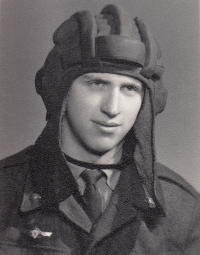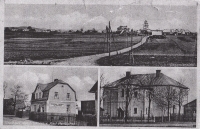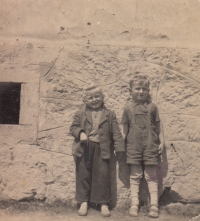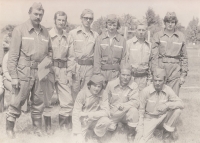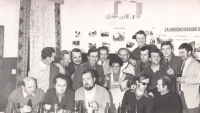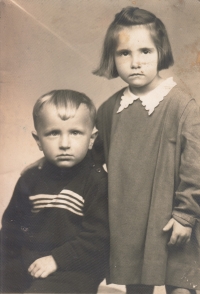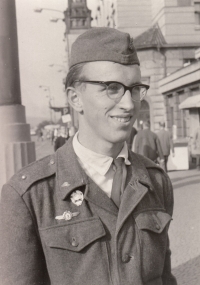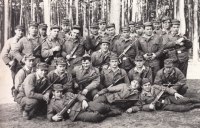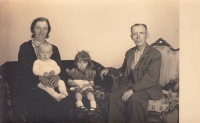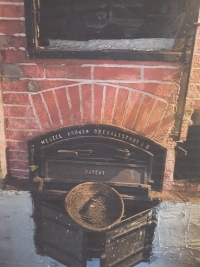The Soviet soldier gave me a kiss and a watch, threw his machine gun on his back and was gone.
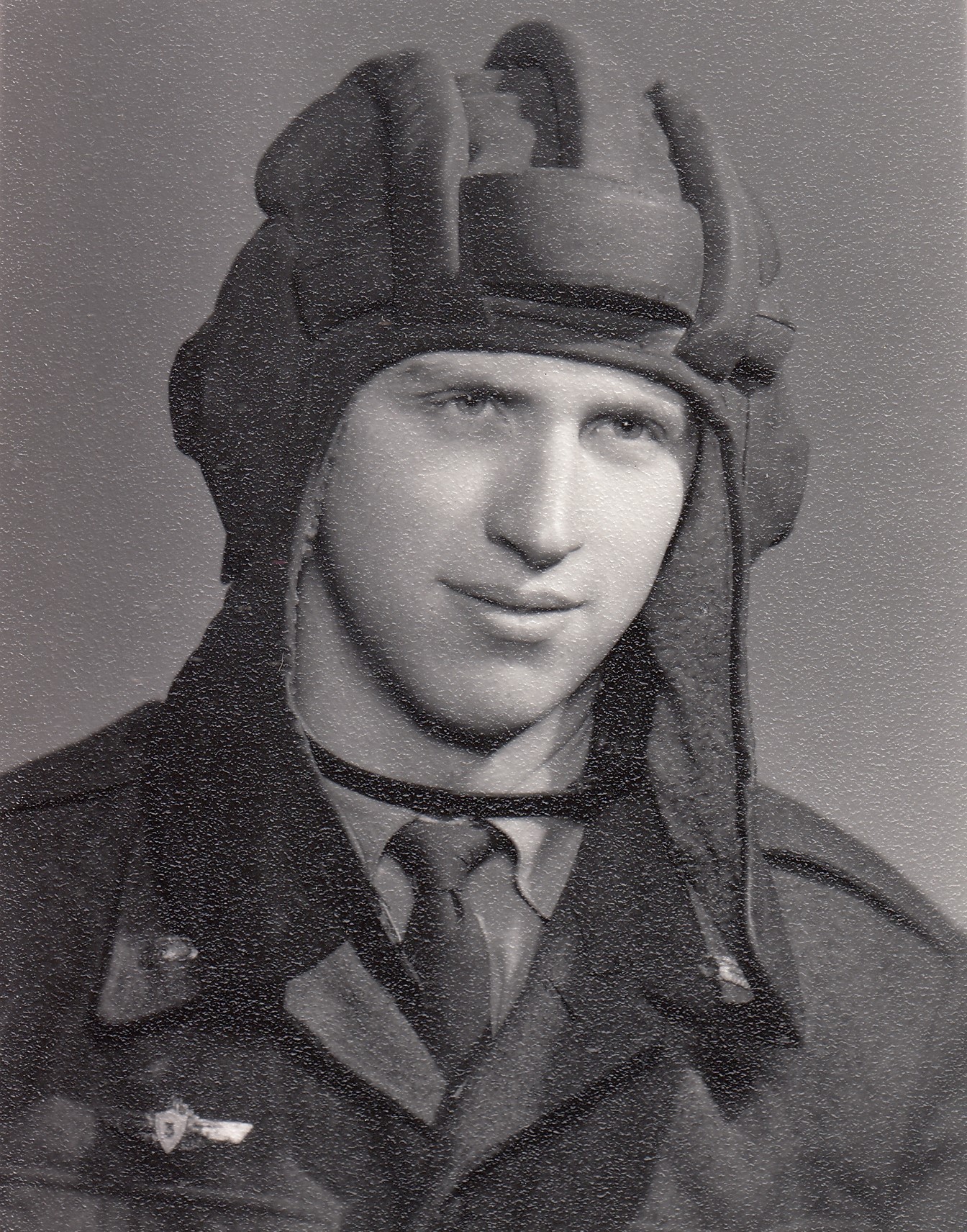
Download image
František Jankovský was born on 4 June 1947. His parents came to Krásné (formerly Neu Metternich) in 1946 to settle the border area. They were given the house of a displaced German family, where his mother Anna Jankovská immediately began to take care of the domestic animals that had been left on the site, while his father Antonín Jankovský was still in Prague and initially commuted to visit her. Later, Antonín Jankovský worked in the forest and drove a horse-drawn carriage, then got a job at the sawmill in Mariánské Lázně and then worked as a tailor there. Later he worked as a miner at the mine in Zadní Chodov and on Panský vrch. František Jankovský’s parents joined the Communist Party but were not active. František Jankovský’s life in Krásné was influenced by the proximity of the border zone, the Iron Curtain. As children, they often noticed the balloons with leaflets and the words Free Europe that Radio Free Europe sent across the border into Czechoslovakia. They also often met with the crews of the Border Guard, the “PS members”. His father used to go to the shaft on the border and sometimes took František with him. In 1962, he joined the apprenticeship in Cheb as a mechanic. In 1966 he started his miltary service, spent two years in the tank workshops as a tank mechanic in Kroměříž, and eventually worked his way up to the position of workshop foreman. In April 1968, he realized that something was about to happen, because a topographic exercise of the Warsaw Pact armies was underway and František Jankovský’s unit was not allowed to leave Libavá with tanks. In August 1968, he worked as an assistant to the unit supervisor. On the twenty-first of August, confusion broke out at the unit, the officers were not sure how to act, whether to fight or to get out of the way of the Soviets - they put the tanks right in front of the barracks gates. František Jankovský returned home to Krásné after his military service. The Soviet garrison was also in Tři Sekery at that time. Jankovský joined the local farm in the workshops as a repairman. In 1971, he passed the driving test for the licence “three” and switched to heavy machinery. Later he worked as a stockman. He also became a volunteer helper to the Border Guard, whose task was to inform the Border Guard about the movement of suspicious people who might try to cross the state border and escape to the West. Already during his military service František Jankovský joined the Communist Party. From 1978 he worked at the Jitona factory in Tři Sekery as a driver and was also in charge of transport, boiler operators and gatekeepers. Later he worked in Mariánské Lázně in the company Hotel Servis, where he stayed until his retirement. He was also involved in local politics and administration. Already in the 1970s he was a member of the National Committee in Tři Sekery and held this position until the revolution. He did not resign from the Communist Party after the revolution, but his local party organization, of which he was the chairman, in fact disappeared. After the revolution he became deputy mayor of the village. In retirement, he then began working in Tři Sekery as a maintenance worker and school caretaker at the local school, where he was also working in 2023. At that time, he was still living in Krásné.

